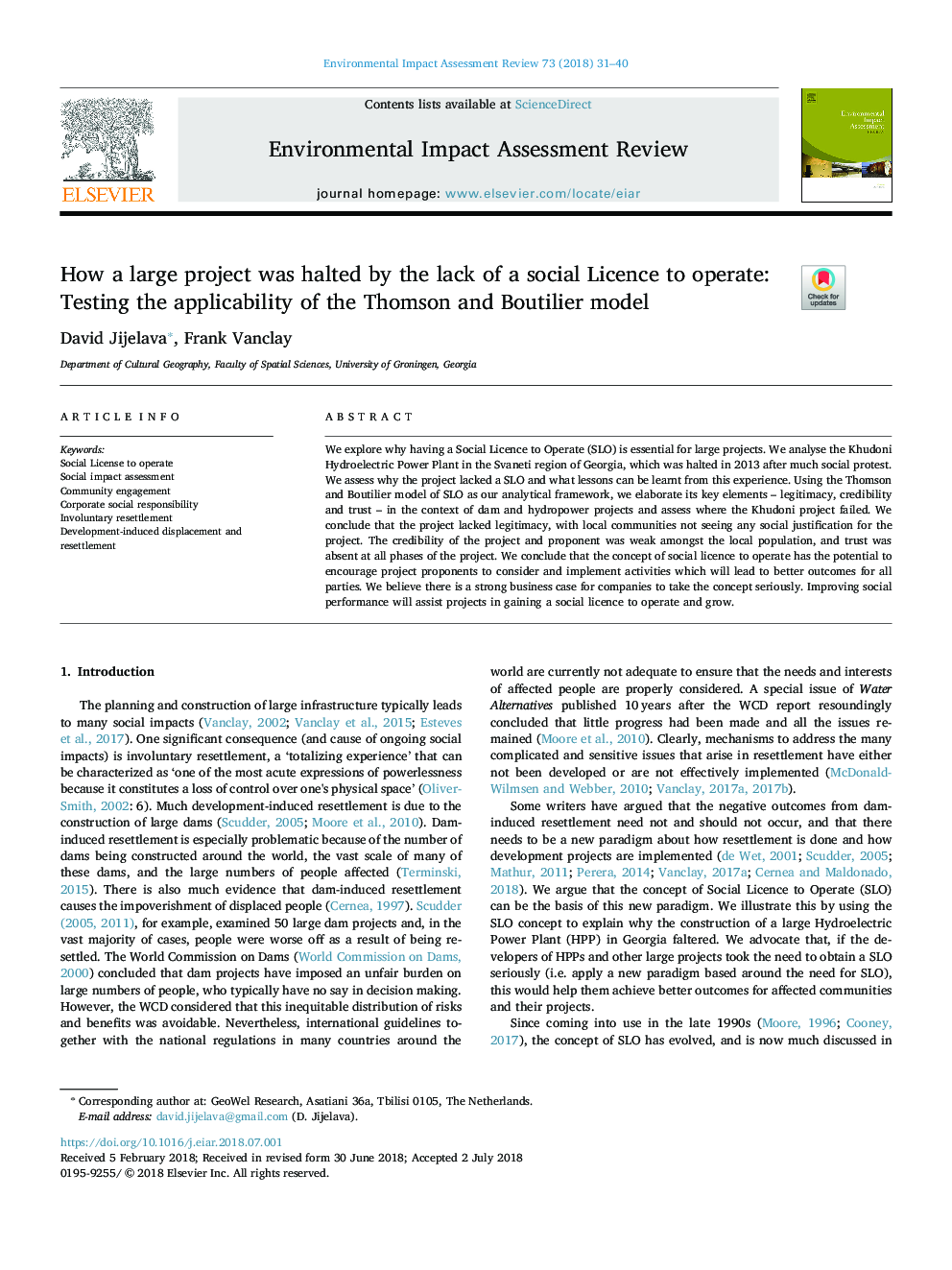| Article ID | Journal | Published Year | Pages | File Type |
|---|---|---|---|---|
| 7464610 | Environmental Impact Assessment Review | 2018 | 10 Pages |
Abstract
We explore why having a Social Licence to Operate (SLO) is essential for large projects. We analyse the Khudoni Hydroelectric Power Plant in the Svaneti region of Georgia, which was halted in 2013 after much social protest. We assess why the project lacked a SLO and what lessons can be learnt from this experience. Using the Thomson and Boutilier model of SLO as our analytical framework, we elaborate its key elements - legitimacy, credibility and trust - in the context of dam and hydropower projects and assess where the Khudoni project failed. We conclude that the project lacked legitimacy, with local communities not seeing any social justification for the project. The credibility of the project and proponent was weak amongst the local population, and trust was absent at all phases of the project. We conclude that the concept of social licence to operate has the potential to encourage project proponents to consider and implement activities which will lead to better outcomes for all parties. We believe there is a strong business case for companies to take the concept seriously. Improving social performance will assist projects in gaining a social licence to operate and grow.
Keywords
Related Topics
Physical Sciences and Engineering
Energy
Renewable Energy, Sustainability and the Environment
Authors
David Jijelava, Frank Vanclay,
